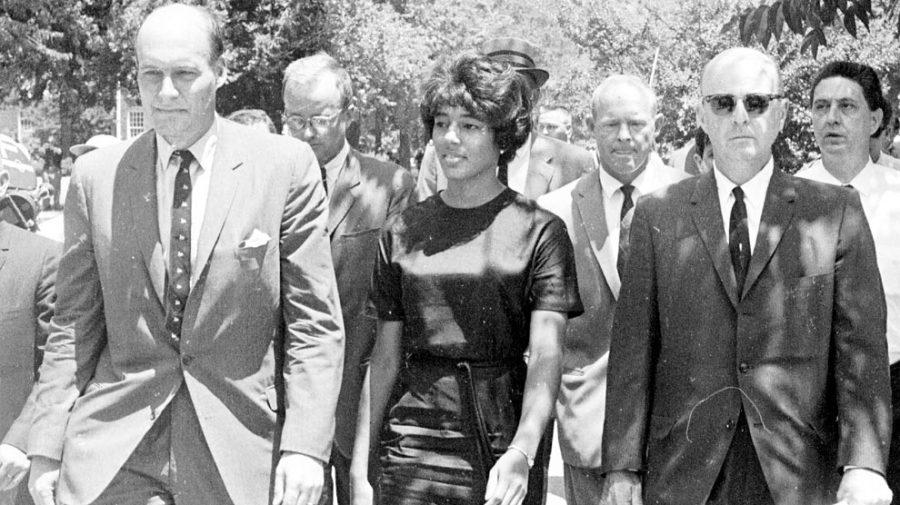Today marks a day of celebration for all those involved with the desegregation of schools and the anti-segregation process of the 1960s, 47 years after George Wallace’s famed Stand in the Schoolhouse Door.
Vivian Malone Jones, one of the first two black students to enroll at the University, was blocked by Wallace on June 11, 1963 along with James Hood and then-Deputy U.S. Attorney General Nicholas Katzenbach. Later that day, she and Hood paid their fees and were successfully enrolled in the University.
Jones, who passed away in October 2005 after suffering a stroke, will be represented at today’s event by her sister, Sharon, and six of her other siblings. Hood will be present at the events.
Sharon Malone said she was excited to be returning to Tuscaloosa for the dedication as she and her husband, current U.S. Attorney General Eric Holder, were here a month ago.
“I just saw a mock-up of the plaza,” she said. “We didn’t see it when we were last in Tuscaloosa, so I am very excited to see everything in person.”
Sharon Malone said she was 4 years old when Vivian was admitted to The University of Alabama, so she doesn’t remember much from that historic June day. She does, however, remember her older sister’s graduation ceremony.
“It was a celebration all around,” she said. “Particularly with Vivian being the first black graduate from the University, and living in the times that we did, it was a really big deal. Vivian managed to open the door for a lot of people.”
After graduating in 1965, Jones worked in the civil rights division of the U.S. Justice Department and at the Environmental Protection Agency, where she was director of civil rights and urban affairs and director of environmental justice.
In 1996, former-governor Wallace presented Vivian Malone Jones with the Lurleen B. Wallace Award for Courage, named after his wife.
Sharon Malone, her brother Elvin, and James Hood will participate in a panel discussion in the Ferguson Center Ballroom at 9 a.m. before heading to the new Foster plaza for its dedication at 1 p.m.
Sharon Malone said one of her fondest memories of her older sister, who raised her after their mother’s death, was how she spoke about the University after she graduated.
“Looking back on it as an adult now, I think the most remarkable thing was that she never spoke about the University negatively,” she said. “I thought she must have been scared or worried. Never. She grew to love UA and came back to the University all the time. I think that really speaks volumes about the continued support she received from UA ever after she graduated.”
Sharon Malone said one thing that makes her very proud is that the University and those around it understand the role that Vivian played during the integration process.
“Unfortunately, Vivian is the only one who is no longer with us,” she said, “but it really makes me happy to see that her legacy will continue for generations to come. She didn’t get to see the wonderful things that have happened the last five years, but she’ll be there [today]. She’ll be there.”









